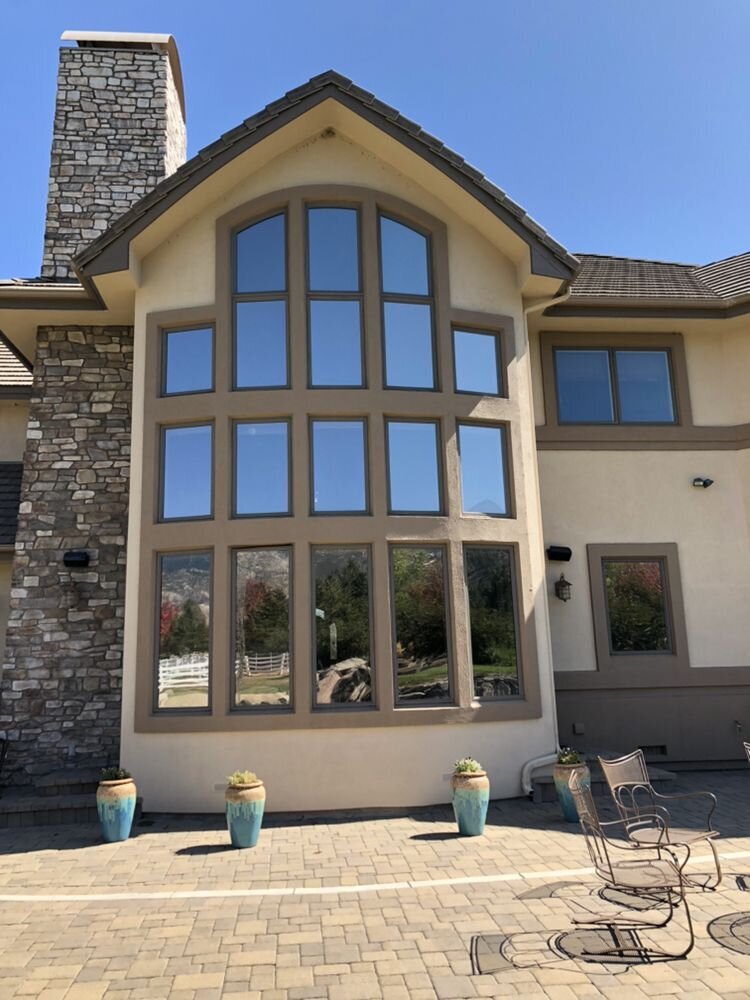Leading Benefits of Putting Up Residential Window Tint for Your Building
Leading Benefits of Putting Up Residential Window Tint for Your Building
Blog Article
Just How Residential Window Tinting Improves Your Home's Power Effectiveness
Residential home window tinting presents an engaging remedy for home owners looking for to boost energy effectiveness within their living areas. By using specialized films to windows, it successfully decreases heat transfer, thereby stabilizing interior temperatures and reducing the requirement for excessive heating or air conditioning.
Recognizing Home Window Tinting
Comprehending window tinting is essential for house owners seeking to improve both comfort and energy efficiency in their home. Residential Window Tint. Home window tinting entails the application of a thin movie to the inside or exterior surface of glass windows. This film can significantly regulate the amount of sunshine and heat that goes into a home, thus influencing indoor climate problems
There are numerous types of window tinting movies offered, each with distinctive properties. The efficiency of home window tinting is usually gauged by its Visible Light Transmission (VLT) percentage, which indicates exactly how much light can pass through the film.
Benefits of Power Performance
Window tinting not only boosts aesthetic appeals yet additionally plays a significant function in improving power efficiency within property spaces. By lowering warmth transfer via windows, colored films produce a much more secure indoor climate, which can bring about substantial reductions in power usage for heating & cooling. This energy effectiveness converts right into lower energy expenses, providing property owners with considerable lasting savings.

In addition, home window tinting improves the convenience of living rooms. By reducing glare and obstructing hazardous UV rays, colored windows develop a more pleasurable setting, which can cause improved well-being for residents. The security versus UV rays also aids protect furnishings and flooring from fading, contributing to the longevity of household items.
Exactly How Tinting Works
Tinting films operate via a combination of sophisticated materials and technologies made to regulate the amount of solar power getting in a home. Mostly composed of polyester, these movies commonly integrate metal or ceramic fragments that soak up and mirror heat. This double ability allows them to substantially minimize the penetration of ultraviolet (UV) rays and infrared radiation while permitting noticeable light to go through.
The efficiency of window tinting is measured by its solar warm gain coefficient (SHGC), which shows just how much solar energy is transmitted with the home window. Lower SHGC worths are more suitable as they represent higher warm denial. Additionally, home window colors can feature a variety of shades, permitting homeowners to personalize their visual preferences while enhancing power effectiveness.
Moreover, these films serve as an obstacle, avoiding heat loss during cooler months by showing indoor warmth back right image source into the space. This thermal insulation result complements the cooling benefits gotten during warmer months, adding to a balanced interior environment year-round. By handling solar energy effectively, household window tinting not just enhances comfort however likewise plays a crucial duty in lowering energy consumption and lowering utility bills.
Selecting the Right Tint

There are various kinds of window films readily available, including dyed, metalized, and ceramic. Ceramic movies offer excellent warmth control without endangering presence and are extremely sturdy, making them a prominent selection.
Noticeable light transmission (VLT) is an additional important aspect, as it suggests the quantity of all-natural light that can pass via the colored glass. Homeowners ought to select a tint with a VLT that complements their lighting preferences while still offering sufficient glare reduction.
Additionally, evaluating the solar warm gain coefficient (SHGC) can assist identify how well a tint can block warmth from sunshine. A reduced SHGC suggests much better warm control, eventually enhancing energy performance.
Installment and Upkeep Tips
Appropriate installation and upkeep are crucial elements in optimizing the benefits of residential home window tinting. To accomplish optimum outcomes, it is a good idea to hire a certified specialist for setup. This ensures that the color is applied appropriately, preventing air bubbles, wrinkles, or imbalance that could endanger performance. Specialists likewise make use of specialized devices and techniques, which can improve the sturdiness and effectiveness of the color.
Complying with installment, upkeep is essential to prolong the life of the window movie. It is advised to wait at the very least 30 days prior to cleaning the tinted windows to enable the sticky to cure completely.
In addition, normal inspections are advantageous. Look for any type of peeling or bubbling, which might suggest inappropriate installment or put on with time - Residential Window Tint. Addressing these issues quickly can stop additional damages and keep energy performance. By adhering to these installation and upkeep tips, home owners can guarantee their home window tinting remains to supply substantial power financial savings and his comment is here convenience for several years ahead.
Conclusion
In final thought, residential home window tinting serves as a reliable service for boosting energy performance within straight from the source homes. By decreasing warmth transfer and blocking damaging UV rays, home window films add to decrease energy usage and boosted indoor comfort.
Home window tinting involves the application of a thin movie to the inside or exterior surface of glass home windows. By lowering warm transfer with home windows, tinted films develop a more stable indoor environment, which can lead to substantial reductions in energy usage for home heating and air conditioning.The effectiveness of window tinting is determined by its solar warm gain coefficient (SHGC), which shows just how much solar energy is transmitted through the window. By handling solar power properly, residential window tinting not only enhances comfort however likewise plays a crucial duty in lowering power intake and decreasing energy costs.
By reducing heat transfer and blocking hazardous UV rays, window films contribute to lower energy intake and boosted indoor convenience.
Report this page